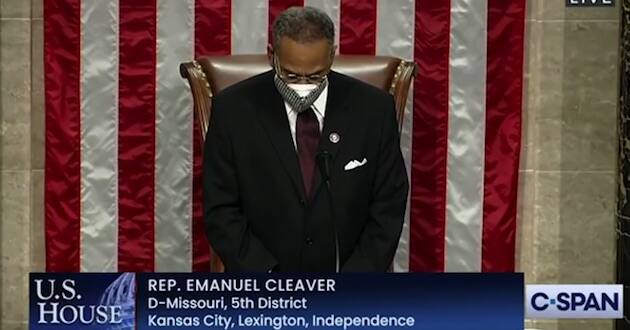Cleaver invokes Hindu god, twists meaning of “amen” in prayer to open Congress

Emanuel Cleaver, a former Methodist minister who represents Kansas City and portions of central Missouri in Congress, offered an unorthodox prayer at the opening session on Sunday.
“Eternal God, noiselessly we bow before your throne of grace as we leave behind the politically and socially clamorous year of 2020,” he began. “We gather now in this consequential chamber to inaugurate another chapter in our roller coaster representative government. The members of this august body acknowledge your sacred supremacy and therefore confess that without your favor and forbearance, we enter this new year relying dangerously on our own fallible nature.”
READ: Cleaver defends Maxine Waters in viral video
Cleaver went on to ask divine assistance during what he described as “a moment when many believe that the bright light of democracy is beginning to dim.” Imploring God to empower the 117th Congress to maintain liberty for future generations, he also asked God to maintain his presence even during times of “heightened disagreement.”
Quoting the benediction from Numbers 6:24-26, Cleaver closed, “Now may the God who created the world and everything in it bless us and keep us. May the Lord make his face to shine upon us and be gracious unto us. May the Lord lift up the light of his countenance on us and give us peace; peace in our families, peace across this land, and — dare I ask, O Lord — peace even in this chamber, now and evermore.”
Though his prayer was replete with explicitly Christian themes, terminology and references, Cleaver closed it by appealing to the deities of “many different faiths,” implying they were all the same. “We ask it in the name of the monotheistic God, Brahma, and ‘god’ known by many names by many different faiths,” Cleaver said..
“Amen and a-woman,” he concluded.
There was no need for Cleaver to attempt to de-genderize the word “amen” because it is not connected to gender. It is Hebrew for “so be it.” Merriam-Webster states that it is “used to express solemn ratification (as of an expression of faith) or hearty approval (as of an assertion).”
–Alan Goforth | Metro Voice






